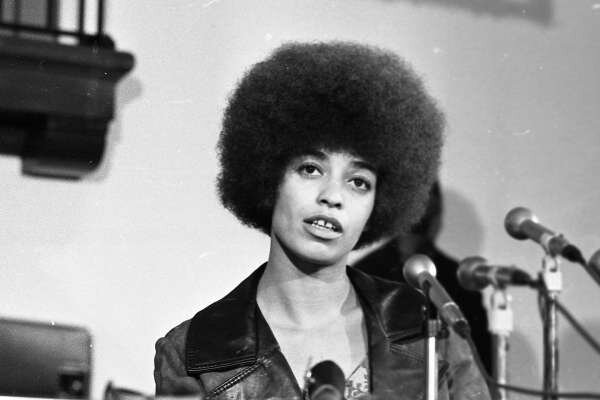Philosophy has often been accused of being incredibly Eurocentric and dominated by white male voices. Plato, Aristotle, and a host of other names are always on the tip of people’s tongues. While we cannot disregard their contributions, their work should not overshadow the equally important work that others have been doing for centuries.
In Honor of World Philosophy Day this past Thursday, check out 15 cool, diverse philosophers, from old famous ones to fresh and exciting contemporaries:
1. Chanakya
Chanakya was an ancient Indian philosopher of the 3th century BCE. He was a jurist and advisor nicknamed “king-maker.” He is also historically identified as Kautilya or Vishnugupta and his most prominent work was “Arthashastra” or “The Science of Material Gain.” His political philosophy has been regarded as ruthless and cunning, as his work has been compared to that of many later European philosophers, most notably Niccolo Machiavelli.
2. Zhuang Zhou
Zhuang Zhou or Chuang-tzu is a late 4th century BCE Chinese philosopher who was a significant figure in Classical Philosophical Daoism. His book, “Zhuangzi” is a compilation of the most important writings of his and others in this period of Warring States.
3. Al-Farabi
Al-Farabi was an early Islamic philosopher from the 9th century who greatly influenced religious and political philosophy. It is still disputed whether or not he was Turkish or Persian but scholars unequivocally agree on the importance of his writings and the subsequent Farabian legacy. He also wrote on subjects such as metaphysics, mathematics, and music. He wrote during the Islamic Golden Age.
4. Nishida Kitaro
Nishida Kitaro is a 20th century Japanese intellectual who was the founder of the Kyoto School of Philosophy. He is said to have epitomised the Meiji period of the late 19th and early 20th century and the Japanese effort to assimilate Western ideas into Japanese traditions.
5. Frantz Fanon
The West Indian scholar Frantz Omar Fanon or Ibrahim Frantz Fanon is a political philosopher who was born in 1925 in the French colony of Martinique. His two key works “Black Skin, White Masks” and “The Wretched of the Earth” are considered essential works of post-colonial studies. His views of Black existentialism, Marxism, and national liberation of colonised nations are what made him so popular.
6. Amartya Sen
The Nobel-Prize winning economist and philosopher Amartya Sen is universally lauded. The Indian expatriate has taught and lived in Delhi, London, and now Cambridge, Massachusetts. Sen’s work in welfare and developmental economics is what he was awarded for and his contributions are undeniable.
7. Jaegwon Kim
Jaegwon Kim was a Korean-American philosopher who taught at many leading American universities. He had a wide variety of intellectual interests but his most prominent work has been in the field of mental causation, metaphysics, and physicalism. His book “Philosophy of Mind” is very highly regarded and commonly used as a textbook in higher education.
8. Gloria Anzaldua
Gloria Evangelina Anzaldúa was a Chicana poet and a pioneering scholar of queer and feminist thoery. She coined the term “The New Mestiza” in her semi-autobiographical work Borderlands/La Frontera and she rejected the binary of gender and geographical borders.
9. Gayatri Spivak
If there is any one single intellectual who completely turned around literary theory and philosophy, it is Gayatri Chakraborty Spivak. The feminist critic is originally from Kolkata, India, and is credited with the subaltern theory in postcolonial studies. She currently teaches at Columbia University.
10. Angela Davis
In the last few months, nearly everyone has learned the name of Angela Davis, but in the field of political philosophy she has been appreciated for much longer. The Alabama native is a scholar in the field of consciousness and communism. She is most well-known for advocating for the abolition of the prison industrial complex.
11. Kimberle Crenshaw
Kimberle Crenshaw is an American lawyer, civil rights advocate and leading scholar of Black feminist legal theory and critical race theory. She is the one who coined the term “intersectionality” and developed the theory around it.
12. Kathryn Sophia Belle
Kathryn Sophia Belle, formerly Kathryn T. Gines, is a philosopher who currently teaches at Pennsylvania State University. She is the founding Director of the Collegium of Black Women Philosophers and much of her scholarship focuses around Black feminist philosophy and existentialism.
13. Alia Al-Saji
The work of Alia Al-Saji spans many geographies, using 20th century French philosophy, decolonial and critical race theory to bring them together. She has written extensively on Muslim women and how race aand gender play a role in Western attitudes towards the headscarf or veil. She teaches at McGill University in Montreal, Canada.
14. Kyoo Lee
Kyoo Lee is a philosopher whose work and interests are interdisciplinary. She writes about and teaches feminist theory, comparative literature and poetry. Her analysis of European schools of philosophy in a contemporary and critical race light are especially well-regarded.
15. Qwo-Li Driskill
Qwo-Li Driskill is a Two-Spirited and queer Cherokee poet and activist. The scholar teaches in the Women, Gender, and Sexuality Studies Department of Oregon State University. Their scholarship dissects the colonial origins of the gender binary among other topics.
